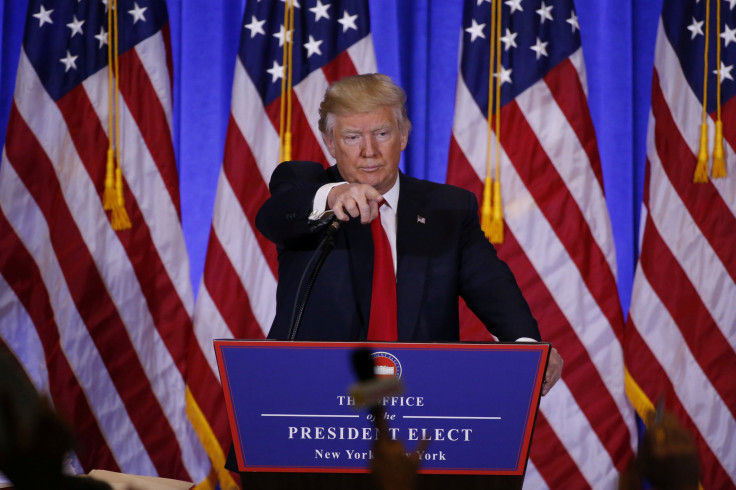Golden Showers Gate Latest Poll: Americans Split On Release Of Trump Dossier

Americans are almost evenly divided over whether an unsubstantiated, politically damaging report about President-elect Donald Trump's activities in Russia should have been made public, a survey released Wednesday indicated.
Of nearly 2,000 Americans polled by a Morning Consult/Politico poll released Wednesday, 16 percent somewhat disagreed and 22 percent strongly disagreed with BuzzFeed’s Jan. 10 decision to publish the unverified 35-page dossier.
Slightly fewer respondents to the survey, which had a margin of error of plus or minus 2 percentage points, believed BuzzFeed made the right choice. Fourteen percent strongly agreed with the decision to publish, one-fifth somewhat agreed and 28 percent said they didn’t know or had no opinion.
BuzzFeed Editor-in-Chief Ben Smith defended his decision as necessary to “share the details” amid “a blanket claim” of Trump’s involvement with Moscow among intelligence officials.
“We’re proud we published it,” he told CNN on Monday. BuzzFeed was in possession of the report “for weeks” and “it was not our job to be gatekeepers,” he added.
The day after the dossier was published, Smith sent his staff a note explaining his rationale for deciding to do so, writing in part that “our presumption is to be transparent in our journalism.” However, he said, “there is serious reason to doubt the allegations.” He also pointed to the fact that the possibly baseless report had been “in wide circulation at the highest levels of American government and media.”
Indeed, New York Times Executive Editor Dean Baquet told his own staff that his decision not to report on the story rested on the fact that. While reporters at the Times had “investigated the allegations,” Baquet wrote, they “haven’t corroborated them, and we felt we’re not in the business of publishing things we can’t stand by.” Mother Jones published a story in which an intelligence official told the left-leaning news site that a “former spy” who “regularly consults with U.S. government agencies on Russian matters” had collected a memo on Trump’s activities in Russia, which, from the quotes provided in the article, resembled the 35-page dossier published by BuzzFeed.
The day before BuzzFeed sparked the political and media firestorm, the Wall Street Journal reported on the U.S. intelligence community’s spending “months trying to substantiate the explosive claims.” The newspaper cited a two-page summary of the dossier that intelligence officials said had been presented to both Trump and President Barack Obama, as did CNN.
Many in the media weren’t happy with Smith’s choice, however. Washington Post columnist Margaret Sullivan, for example, said the site “crossed the line.”
“It’s never been acceptable to publish rumor or innuendo,” Sullivan, the Post’s media columnist, wrote in a Jan. 11 op-ed. “And none of the circumstances surrounding this episode—not CNN’s story, not Trump’s dubious history with Russia, not the fact that the intelligence community made a report on it—should change that ethical rule.”
Glenn Greenwald, a former Guardian reporter to whom Edward Snowden provided leaked U.S. intelligence documents in 2013, railed against Smith’s decision in a Jan. 11 editorial for the Intercept, an intelligence-focused news site he co-founded in 2014.
“There is no bigger favor that Trump opponents can do for him than attacking him with such lowly, shabby, obvious shams, recruiting large media outlets to lead the way,” Greenwald wrote, criticizing media organizations’ willingness to rely on U.S. intelligence agencies, which, he noted, have their own agendas. “When it comes time to expose actual Trump corruption and criminality, who is going to believe the people and institutions who have demonstrated they are willing to endorse any assertions, no matter how factually baseless, who deploy any journalistic tactic no matter how unreliable and removed from basic means of ensuring accuracy?”
© Copyright IBTimes 2024. All rights reserved.






















